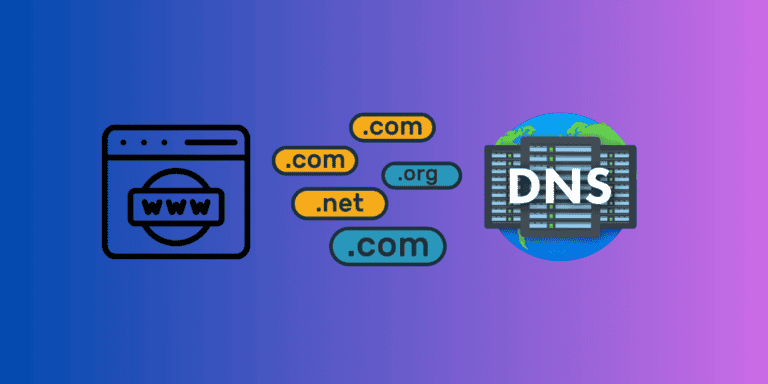All You Need to Know About Web Hosting in 2024: Ultimate Best Guide

As we enter 2024, understanding web hosting can be a maze of choices and technicalities.
The decision-making process can be overwhelming, with options ranging from shared hosting to cloud services, especially for those new to creating an online presence for personal projects or business ventures.
This blog aims to provide accessible and comprehensive information on web hosting for all readers. It will cover various aspects of web hosting and aims to help readers make informed decisions.
You’ll find clear, straightforward explanations about web hosting, hosting types, including dedicated and VPS hosting, and practical advice on selecting the right provider.
Whether managing one website or several, this guide is designed to cater to a diverse audience, making web hosting accessible to all.
By breaking down key concepts like server resources, hosting plans, and the differences between free and paid services, this post ensures you’ll comprehensively understand web hosting.
You’ll gain the knowledge needed to confidently choose a web hosting service that best fits your online goals in 2024.
Key Takeaways
Tailored Hosting Choices: Match the hosting type to your website’s purpose, whether for a personal blog, a burgeoning e-commerce site, or a small business.
Provider Evaluation: Look for reliability, speed, support, and scalability in a hosting provider, ensuring they meet both your current needs and future expansion.
Feature Focus: Prioritize essential features such as security, uptime, and customer support while considering advanced features for enhanced site performance.
Budgeting Wisely: Balance your web hosting needs with a realistic budget, considering that the cheapest option may not always be the best in the long term.
Growth Planning: Choose a hosting service that can grow with your website, offering scalable resources as your traffic and content increase.
1. What is Web Hosting?

About Web Hosting
Web hosting is the backbone of any website. It’s a service provided by web hosting companies that allow individuals and organizations to make their websites accessible online. Think of renting a space on a web server where your website’s files and data are stored.
Whenever someone types your web address into their browser, the internet connects to the server holding your website files, and voila, your website appears on their screen.
Understanding Web Hosts and Hosting Services
A web host is more than just a storage space for your website. It’s a caretaker that ensures your site stays up and runs smoothly. Hosting services vary widely – from shared hosting, where your site lives on a server with other sites, to dedicated hosting, where you have an entire server.
Each type of hosting caters to different needs, depending on your website’s size, traffic, and technical requirements. The right hosting service ensures your site is fast, secure, and consistently accessible to your audience.
2. How Does Hosting Work?

The Technical Side of Web Hosting
Web hosting functions through a network of physical servers and powerful computers storing and processing website data. When you opt for a hosting plan, your website’s files – including HTML, images, and videos – are stored on these servers.
The server then serves your website to users via the internet when they enter your domain name in their browsers. This process is supported by web server software, which manages access to your site’s files, ensuring they are delivered to visitors promptly and securely.
How Hosting Affects Your Website
The choice of hosting has a significant impact on your website’s performance. A good hosting provider ensures high uptime, meaning your website is always available to visitors. Hosting also affects website speed – a critical factor in user experience and SEO rankings. Shared hosting can be more cost-effective for smaller sites but may slow down performance during high traffic.
In contrast, dedicated or VPS hosting offers more resources, leading to faster load times and better handling of high visitor volumes. Choosing the right hosting aligns with your site’s needs, offering a balance of speed, reliability, and cost.
3. How to Choose a Web Hosting Provider

Selecting a web hosting provider is a delicate balance of evaluating reliability, speed, support, and scalability against your website’s specific requirements and budget constraints. The right provider matches your current needs and supports your site’s growth over time.
Key Criteria for Selecting a Hosting Provider
Selecting the right web hosting provider is crucial for your website’s success. Key factors include uptime reliability, where a higher percentage means your site is rarely down. Speed is another critical aspect, as slow websites can deter visitors. Look for customer support that is responsive and helpful, as you’ll need quick solutions for any issues.
Additionally, consider the scalability of hosting plans – your provider should be able to grow with your website’s needs. Also, evaluate the cost against the features provided to ensure you’re getting value for your money.
Comparing Different Hosting Providers
When comparing hosting providers, it’s not just about the price. Examine the specifics of their hosting plans – some may offer unlimited storage or bandwidth, while others might have better security features or specialized services like managed WordPress hosting.
User reviews and testimonials can provide real insights into their reliability and customer service quality. Finally, consider any additional services they offer, such as free domain registration, website builders, or regular backups, which can add significant value to their hosting packages.
4. Types of Web Hosting

Exploring Various Web Hosting Services
Web hosting comes in different forms, each designed to meet various needs. Shared hosting is a budget-friendly option where multiple websites share the same server resources. It’s ideal for small websites or blogs.
VPS (Virtual Private Server) hosting offers a middle ground between shared and dedicated server hosting. It provides more resources and better control than shared hosting without the high cost of a dedicated server.
Dedicated hosting gives a whole server’s resources for maximum performance and security for large businesses or high-traffic websites. On the other hand, cloud hosting uses multiple servers to ensure greater reliability and scalability, accommodating sudden traffic spikes efficiently.
Shared, Dedicated, and Cloud Hosting Options
Each hosting type suits different website requirements. Shared hosting is cost-effective and user-friendly, perfect for beginners or small sites with lower traffic. However, shared resources can limit performance.
While more expensive, dedicated hosting provides exclusive server resources, offering high performance, security, and customization – best for large businesses and high-traffic sites.
Cloud hosting brings the best of both worlds, scalability, and reliability, making it suitable for websites that experience variable traffic or are growing rapidly. Your choice will depend on your website’s size, budget, and technical requirements.
5. Identifying Your Website Type

Matching Hosting to Your Website’s Purpose
The nature of your website plays a pivotal role in choosing the right hosting. Shared hosting often suffices for personal blogs or small portfolios, offering a cost-effective solution with adequate resources.
Business websites, especially those handling e-commerce or large traffic volumes, may require VPS or dedicated hosting for better performance and enhanced security.
Websites with fluctuating traffic, like news portals or seasonal promotional sites, can benefit from the scalability of cloud hosting. Understanding your website’s primary function helps you select a hosting service that aligns with your needs.
Special Considerations for Different Website Types
Different website types have unique hosting requirements. An online store, for example, needs robust security and the ability to handle spikes in traffic and transactions smoothly. A portfolio or a personal blog might prioritize ease of use and cost over advanced features.
Websites with heavy media content need ample storage and bandwidth, where dedicated or cloud hosting might be advantageous. Specialized WordPress hosting can offer optimized performance and streamlined updates for websites focusing on content management systems like WordPress.
6. Choosing Hosting Features

Key features in web hosting range from essential aspects like uptime and security to advanced offerings like automated backups and content delivery networks.
Essential Features in a Web Hosting Service
When selecting a web hosting service, certain features are fundamental. Reliability is key, so look for high uptime guarantees. Speed influences user experience and SEO; thus, fast loading times are crucial. Security features, including SSL certificates, protect your site and visitors.
Additionally, consider the amount of storage and bandwidth offered – these should align with your website’s size and traffic. Good customer support is invaluable; it ensures help is available whenever you encounter issues. Lastly, ease of use, often through a user-friendly control panel, makes managing your website more efficient.
Advanced Features for Enhanced Performance
For websites with specific needs, advanced hosting features can significantly boost. Scalable resources, like extra bandwidth or storage, are important for growing sites. Automated backups and recovery systems offer peace of mind, safeguarding against data loss.
For e-commerce sites, advanced security features like DDoS protection and dedicated IP addresses enhance credibility and safety.
Content Delivery Networks (CDNs) improve site speed and accessibility by distributing content globally. Managed services, especially for platforms like WordPress, can save time and optimize performance with expert handling of technical aspects.
7. Web Hosting Support Needs

Reliable customer support is indispensable, ensuring your website runs smoothly around the clock.
Evaluating the Support Offered by Hosts
The level of support a web hosting company provides is a crucial factor to consider. Efficient customer service can be a lifesaver, especially during technical difficulties. When evaluating a host, check their support channels – do they offer 24/7 assistance via phone, email, or live chat?
Look into their response times and the expertise of their support team. Reading customer reviews and feedback for real-world insights into their support quality is also helpful. A host with a proactive and knowledgeable support team can greatly enhance your website management experience.
The Importance of Reliable Support in Hosting
Reliable support in web hosting isn’t just about solving problems – it’s about ensuring your website’s continuous, smooth operation. Good support can help you navigate complex issues like server downtime, security threats, or software glitches.
It also plays a vital role in maintaining your website’s performance and can guide you in optimizing your hosting resources. In essence, dependable customer support from your hosting provider is not just a service feature; it’s an integral part of your website’s success and stability.
8. Planning for Website Growth

Planning for future growth and setting a clear budget for web hosting are crucial steps.
Scalable Hosting Solutions
As your website grows, so do its hosting needs. Scalable hosting solutions are vital for accommodating this growth without hindering performance. Look for hosting plans that upgrade server resources like CPU, RAM, and storage.
Cloud hosting is often a great choice for scalability, as it allows for rapid adjustment of resources in response to your site’s changing demands. A hosting plan that grows with your website ensures you can handle increased traffic and content without a hitch.
Preparing for Future Traffic and Resource Needs
Anticipating future growth is key in selecting the right hosting service. If you expect a steady increase in traffic, consider hosting options with high bandwidth and storage limits. For businesses planning to add more online services or e-commerce features, ensure your hosting can support additional databases, email accounts, and security needs.
Regularly reviewing your website’s performance and hosting usage can help you predict when to upgrade, keeping your site running smoothly as it evolves.
9. Setting a Web Hosting Budget

Scalable hosting solutions and cost-effective options are vital in accommodating expanding website needs while keeping expenses in check.
How to Budget for Web Hosting
Budgeting for web hosting requires balancing your website’s needs and what you can afford. Start by assessing your site’s traffic, storage, security, and speed requirements. Allocate funds considering these needs, but also keep in mind future growth. Remember, the cheapest option isn’t always the most cost-effective in the long run.
Factor in potential additional costs like domain registration, SSL certificates, and backup services. You can create a more accurate and effective hosting budget by understanding your website’s requirements.
Cost-Effective Hosting Options
There are several cost-effective hosting options available that don’t compromise on quality. Shared hosting is a great starting point for small websites and blogs with lower traffic. Many hosting providers offer basic plans with essential features at a low cost.
Look out for deals and discounts, but be wary of long-term contracts that might seem cheaper initially. Free hosting can be an option for basic personal websites, but it often has limitations. Always read the fine print to understand what you’re getting for the price.
10. Free vs. Paid Web Hosting

Free hosting can be a great starting point for basic, low-traffic sites. However, investing in paid hosting services with enhanced features and reliability is often wise for professional and growing websites.
Benefits and Limitations of Free Hosting
Free web hosting is an attractive option for individuals looking to start a basic website without financial commitment. It’s particularly appealing for small projects, personal blogs, or as a learning platform for beginners. However, free hosting has its limitations.
Typically, it offers minimal storage, limited bandwidth, and basic customer support. Additionally, free hosting often places advertisements on your site and may lack crucial features like SSL certificates. These constraints can be significant if you plan to scale or professionalize your website.
When to Invest in Paid Hosting Services
Investing in paid hosting services becomes essential when your website’s demands exceed the capabilities of free hosting. To build a professional, business-oriented website, paid hosting offers advantages like enhanced security, more storage and bandwidth, better uptime, and advanced features.
It also provides greater control over your website, such as custom domain names and no forced ads. For e-commerce sites, blogs expecting high traffic, or any site aiming for growth and stability, paid hosting is a worthwhile investment to ensure a reliable and professional web presence.
11. Picking a Web Hosting Provider

Finalizing Your Hosting Choice
Selecting the right web hosting provider is crucial in your website’s journey. Before finalizing your choice, review the provider’s track record for reliability and customer satisfaction. Ensure their hosting plans align with your current needs and offer room for growth.
Consider the level of customer support they provide – is it 24/7, and are the support channels convenient for you?
Finally, check for benefits like free domain registration or site migration services. A thorough comparison of features versus costs across various providers will help you make a well-informed decision.
What to Do After Choosing a Provider
Once you’ve chosen a web hosting provider, the next steps are critical to setting up your website for success. If necessary, register or transfer your domain name to the new host. Set up your hosting account and familiarize yourself with the hosting control panel.
You’ll manage your website’s files, databases, and email accounts here. Install any necessary applications, like content management systems, and ensure your website’s security features are activated. Finally, regularly monitor your website’s performance and hosting resource usage to ensure it continues to meet your needs.
12. Free Web Hosting Services

Exploring Free Hosting Options
Free web hosting services appeal to those starting or experimenting with web presence without financial investment. These services often provide basic hosting capabilities, including limited storage, bandwidth, and sometimes a subdomain (as opposed to a custom domain).
While free hosting can be a good testing ground for beginners, it’s important to understand its limitations. Performance, security features, and customer support are typically minimal, and there may be restrictions on monetizing your website.
When Free Hosting is the Right Choice
Free hosting could be the right choice under specific circumstances. It suits personal projects, portfolios, or experimental websites where budget constraints are paramount. Free hosting can serve your needs well if your website is expected to have low traffic, minimal content, and no commercial objectives.
It’s also suitable for learning web development or content management systems without upfront costs. However, transitioning to a paid hosting service is advisable for any long-term project aiming for growth, reliability, or professional presentation.
13. Hosting for Small Businesses

Small businesses require hosting that offers a blend of performance, security, and scalability, with additional tools to facilitate business operations and customer engagement.
Finding the Right Host for Your Small Business
For small businesses, finding a web hosting provider that balances cost, performance, and scalability is important.
Key features should include reliable uptime, sufficient storage and bandwidth, and robust security measures to protect sensitive business and customer data.
A host that offers excellent customer support is also vital for swiftly addressing any issues. Additionally, consider hosts that provide business-specific tools, such as e-commerce platforms, email hosting, and website builder tools, to streamline your online operations.
Special Hosting Considerations for Small Businesses
Small businesses need to pay attention to specific hosting aspects. As your business grows, your website should be able to scale accordingly, so scalable hosting options are essential.
Consider the potential for increased traffic and ensure your chosen hosting plan can handle this without affecting site performance. Security is paramount; look for features like SSL certificates, regular backups, and malware protection.
Also, assess the ease of integration with other business tools and platforms, ensuring seamless operation and management of your online presence.
Summary
As we wrap up our comprehensive guide on web hosting in 2024, remember that your choice of web hosting can significantly influence the success and performance of your website.
From understanding the different types of hosting, like shared, VPS, dedicated, and cloud options, to selecting a provider that aligns with your website’s needs and growth plans, each decision plays a pivotal role in your online journey.
Frequently Asked Questions
What do I need to know about hosting a website?
Web hosting is where your website’s files are stored and made accessible online.
Different types include shared VPS, dedicated, and cloud hosting.
The right hosting depends on your site’s size, traffic, and specific needs.
What factors should I consider when choosing a web hosting provider?
Reliability and uptime: Ensures your site is consistently accessible.
Support: Look for 24/7 customer service with good reviews.
Scalability: Ability to upgrade as your site grows.
Security features: SSL certificates, backups, and malware protection.
Price: Balance cost with the features and performance offered.
What are the minimum server requirements for my website?
It depends on your website type: simple blogs require less than e-commerce sites.
Basic requirements: at least 1GB of RAM, enough disk space for your content, and adequate bandwidth.
For CMS like WordPress, PHP support and an SQL database are needed.
What is the difference between bandwidth and disk space?
Disk Space: The amount of storage allocated for your website files.
Bandwidth: The amount of data transferred to and from your website over a period, often monthly.
How do I scale my website to handle more traffic?
Upgrade your hosting plan to offer more resources like bandwidth and CPU.
Consider cloud or VPS hosting for better scalability.
Optimize your website for performance (like image compression and caching).
Regularly monitor traffic patterns and prepare for peak times.





